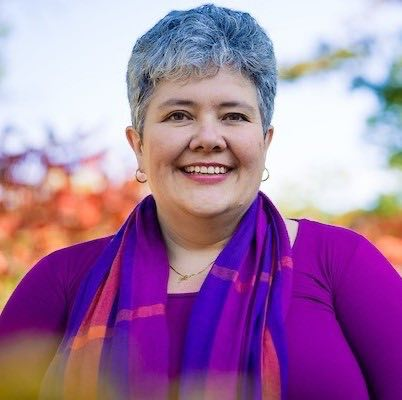The newly formed Uxbridge Poverty Coalition hosted a “Poverty Maze” last November to raise awareness of the realities of life below the poverty line in north Durham. Some 25 people, including local residents, politicians, Durham Region police officers and media, took part in the exercise at St. Paul, Uxbridge.
The Uxbridge Poverty Coalition was formed last June when St. Paul’s incumbent, the Rev. Canon Mark Kinghan, Beverly Northeast of the Salvation Army, and Mona Emond, executive director of North House, invited local residents to examine the issue of poverty in the community. North House, which provides a range of housing supports in the townships of Brock, Uxbridge and Scugog, is one of the diocese’s FaithWorks ministry partners.
“We wanted to invite people to see what poverty looks like in Uxbridge, and dispel some of the myths around it,” said Canon Kinghan, noting that Uxbridge is a relatively affluent town where it is easy to think of poverty and homelessness as an urban problem. “What homelessness looks like here is someone sleeping on a friend’s couch, or a family with kids moving into a grandparent’s apartment and trying to make ends meet between Ontario Works and the grandparent’s pension.”
Jessica Barbuto, a community outreach and housing support worker with North House, developed the three-hour exercise based on a similar “Homeless Maze” activity in Oshawa. Participants met upstairs in the church to be assigned the scenario of a particular person living in poverty, each with a checklist of needs related to that individual scenario. They then went down to the basement, where representatives of different organizations, including North House, the local Ontario Works office, the Boys and Girls Club, and the local food bank, were stationed at tables around the parish hall. Each participant had to visit the tables to obtain the supports listed on their checklists. Sometimes, after standing in line waiting to reach one table, participants would be directed to another agency – and have to wait in its line – to obtain another service (such as ID) before coming back to the original table. When the exercise closed, some people were still standing in line.
“The whole point of the exercise is to make you frustrated at the process,” says Ms. Emond, noting that in real life, the “maze” is complicated by the distance between the service organizations, the lack of public transportation options in the region, and limited accessibility. She would like to hold a Poverty Maze in the summer that would actually involve going between the offices of the various agencies, but noted it would take much longer than three hours.
The exercise concluded with a debriefing session back in the church nave, during which participants related their sense of frustration as well as the anxiety and indignity they felt waiting in line and sharing their story over and over. For some, it hit close to home – making them realize that in only slightly different circumstances, they could find themselves in a situation much like the scenario they played out.
In addition to building empathy on the part of local residents, politicians, media and police, Ms. Emond remarked that the Poverty Maze was valuable in bringing the various support organizations together. “Some organizations didn’t have a clear idea of the services and supports available from other agencies before this exercise. The networking and connections formed through participating in the Maze create a synergy that will help us make better referrals and work together as part of a bigger team.”
She wants to build coalitions in the other communities served by North House, and to introduce the Poverty Maze there as well. The first meeting of the Scugog Poverty Coalition was scheduled for Feb. 12 at Church of the Ascension, Port Perry.





This is not a time to be afraid. It is a time to have courage